The goal of this project is to create a museum-like experience through an exhibit in U.Porto's rectory, which aims to present each one of the 14 faculties of the University. A visitor to U.Porto's rectory can get to know each faculty, its projects and resulting impact in society, as well as future prospects on tomorrow's world by interacting with a tablet. Each faculty has its own user experience and visual aspect.
Although there are somewhat similar apps (e.g. Study UK Exhibitions), where you can get to know a faculty and events it organises, these apps are not tailored for the social impact the faculties' projects have, and cannot be configured to our client's use case.
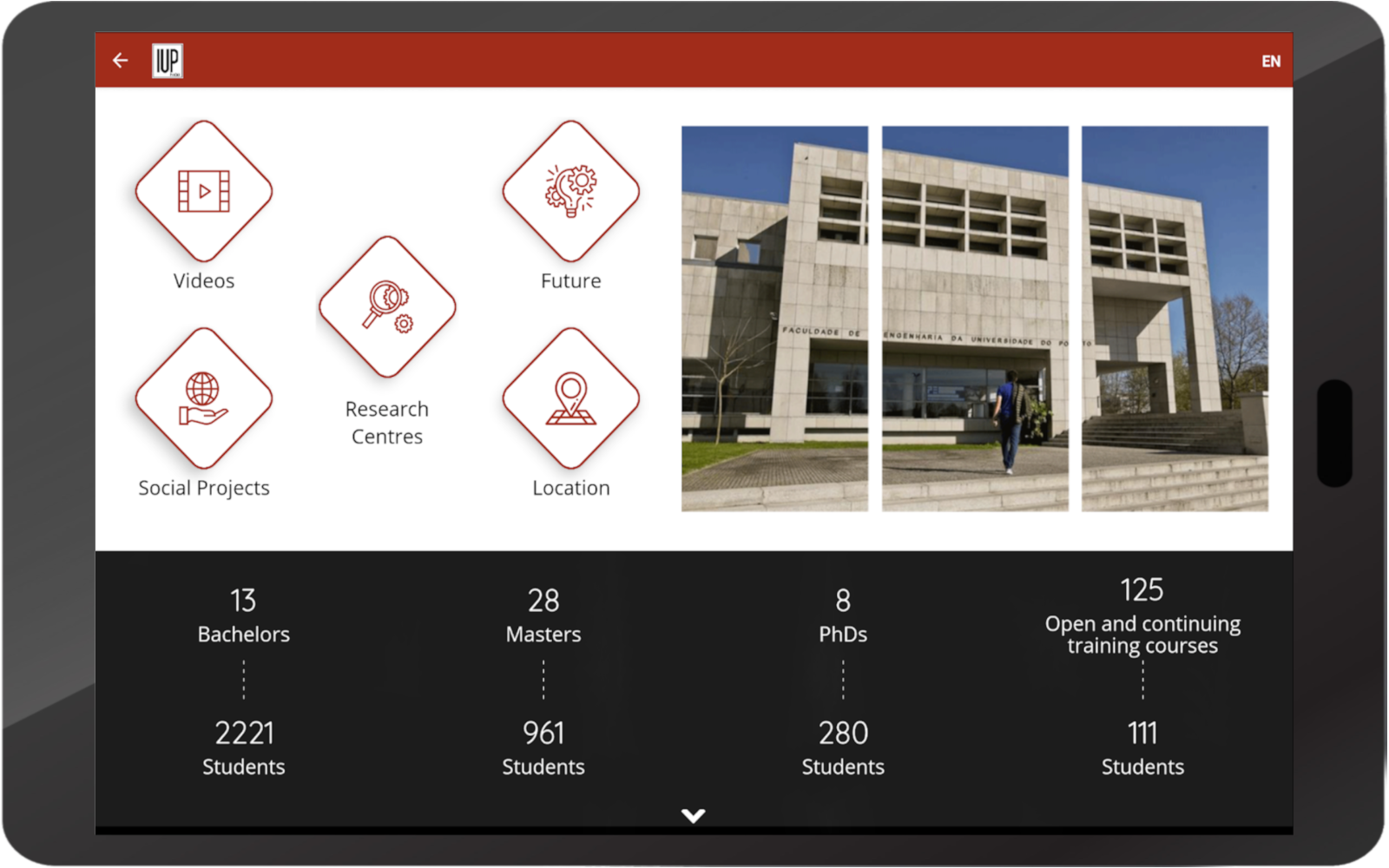 |
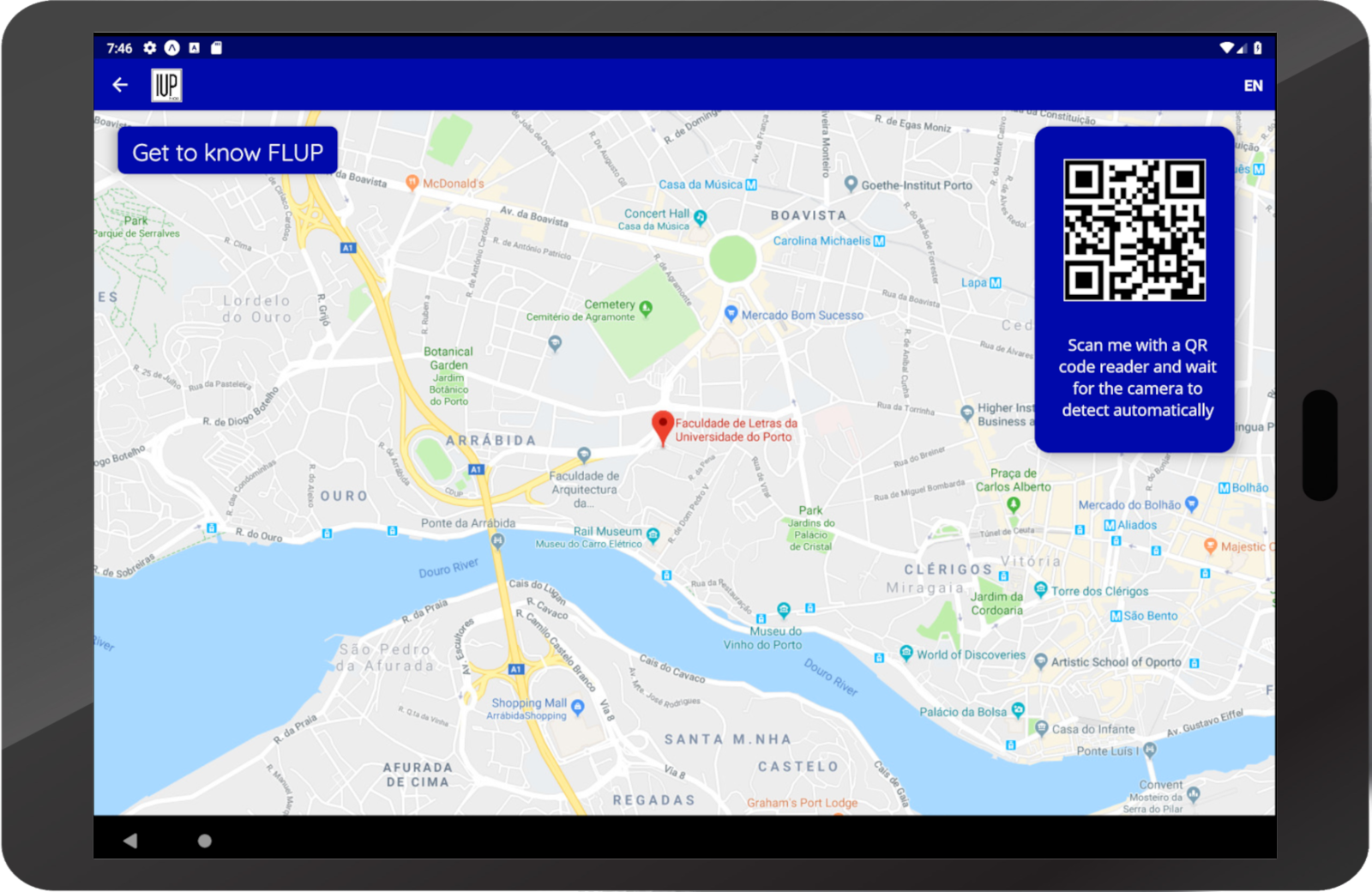 |
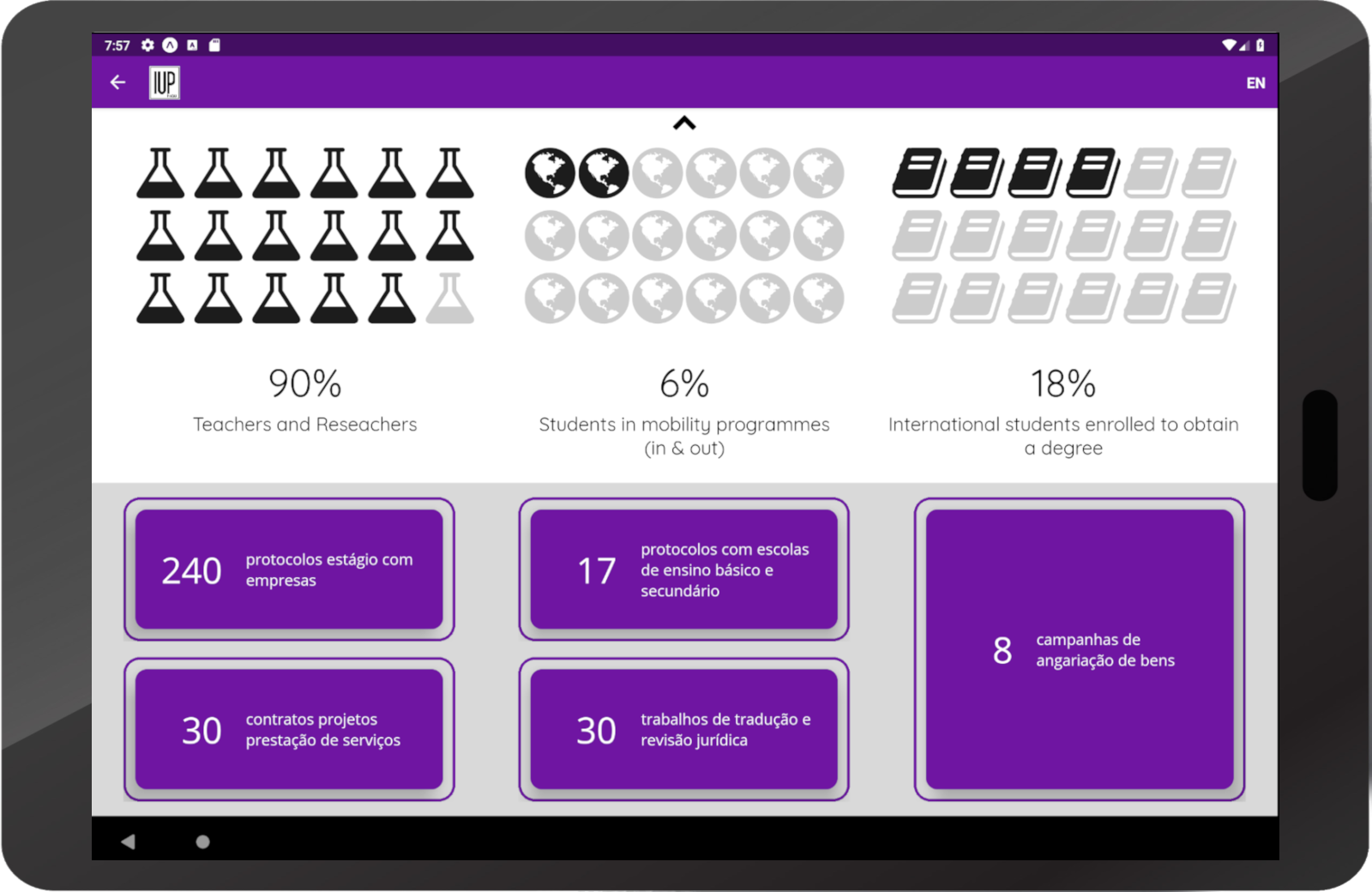 |
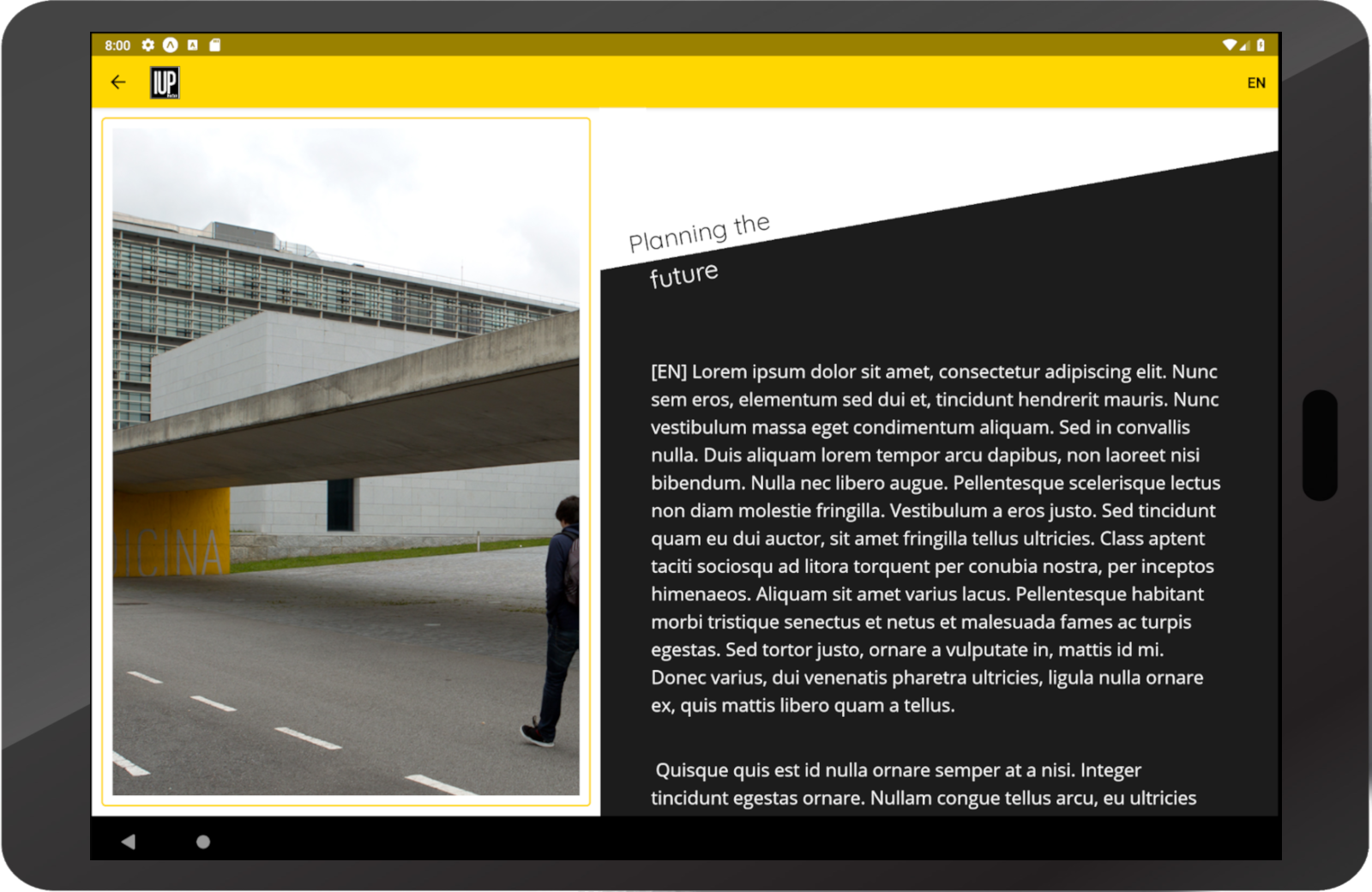 |
 |
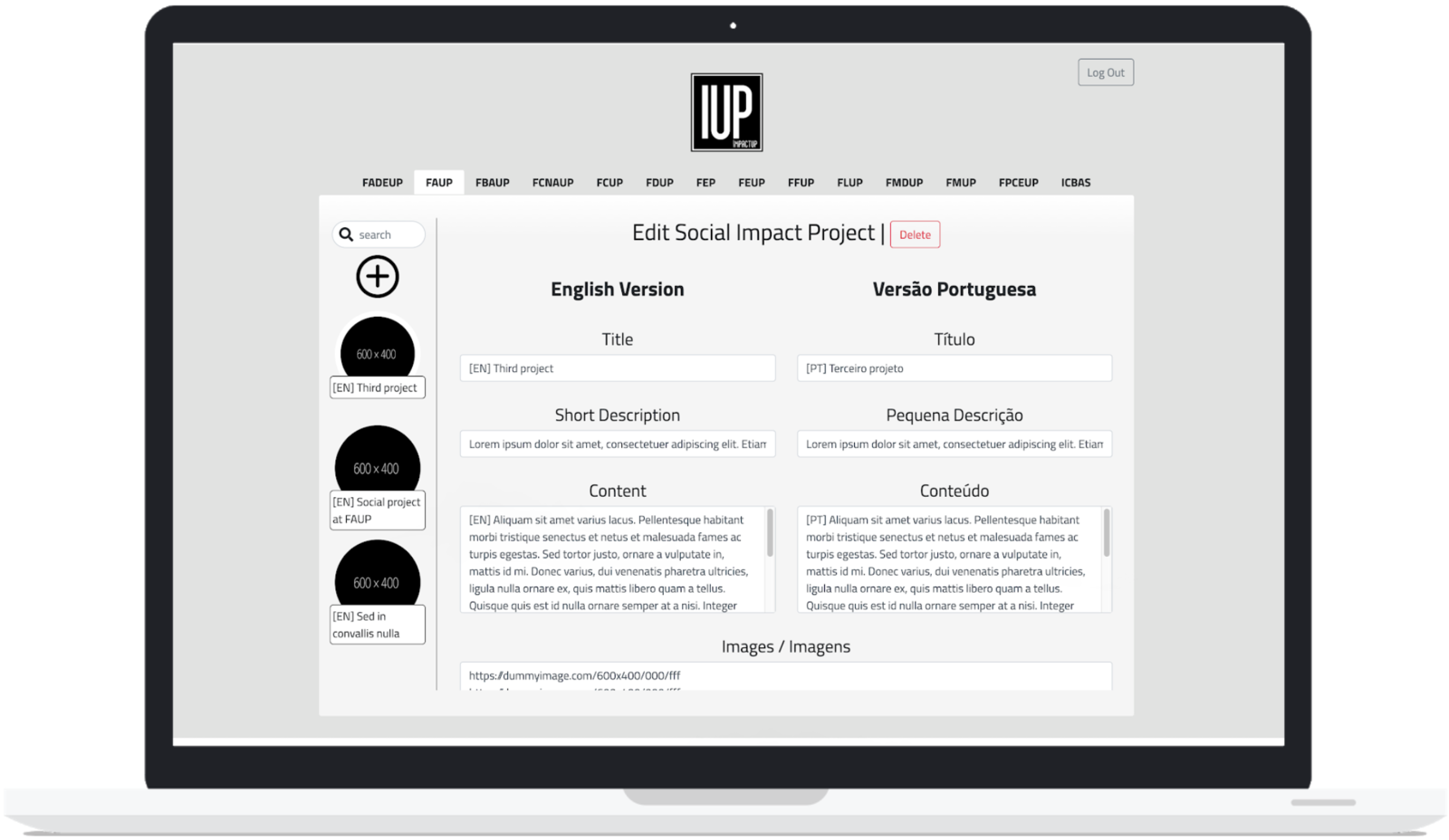 |
- André Miguel Ferreira da Cruz - Scrum Master
- António Cunha Seco Fernandes de Almeida
- Edgar Filipe Amorim Gomes Carneiro - SPO
- João Dias Conde Azevedo
- João Nuno Fonseca Seixas
- João Paulo Madureira Damas
- Luís Noites Martins
- Mariana Lopes da Silva
On the mobile directory:
- Install dependencies:
yarn - Create a
.envfile with anapienvironment variable with your api's url - Run expo
expo start - Wait for QR code to show up and scan with mobile phone using the Expo app
If you prefer/need to run the app on an emulator, the easiest (and heaviest) way is to install one through Android Studio.
- Install Android Studio and setup a virtual device
- Install a sample Expo project on your host machine (not on Docker). For example,
create-react-native-app - Run the sample app on your emulator with
npm run android. This will install the Expo client on your fresh virtual device - You should now be able to run any Expo app accessible by your virtual device by copying the app's url to the Search tab
On the mobile directory:
- Run test suites -
yarn test - Update snapshots -
yarn test -u - Watch mode (listen to file changes and rerun tests) -
yarn test --watch
On the root directory, run docker:
REACT_APP_ENDPOINT=<api_url> docker-compose up --build web-app
api_urlcould be the production API url -- http://impactup.westeurope.cloudapp.azure.com:80/api -- or any other endpoint of a running server.
Inside web-app folder, run this commands:
yarn install
yarn jest
On the root directory, run docker:
docker-compose up --build server
On the server directory, run:
npm install
npm run test
npm run test:coverage
npm run test:coverage-report
Note: the following production and staging deployment urls are broken due to the limited resources available for the project, but are left here for historical reference.
This environment is mapped to the repository's master branch. This environment uses the standard HTTP port: 80
The result of the production server deployment can be observed at http://impactup.westeurope.cloudapp.azure.com:80/api
The result of the production web-app deployment can be observed at http://impactup.westeurope.cloudapp.azure.com:80/
The result of the mobile app deployment can be observed at https://expo.io/@ldsot3g1/impact-up?release-channel=master
This environment is mapped to the repository's develop branch. It's on the same url as the production environment, but uses the 8080 port instead of the standard 80 port.
The result of the staging server deployment can be observed at http://impactup.westeurope.cloudapp.azure.com:8080/api
The result of the staging web-app deployment can be observed at http://impactup.westeurope.cloudapp.azure.com:8080/
The result of the mobile app deployment can be observed at https://expo.io/@ldsot3g1/impact-up?release-channel=develop
